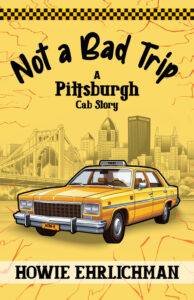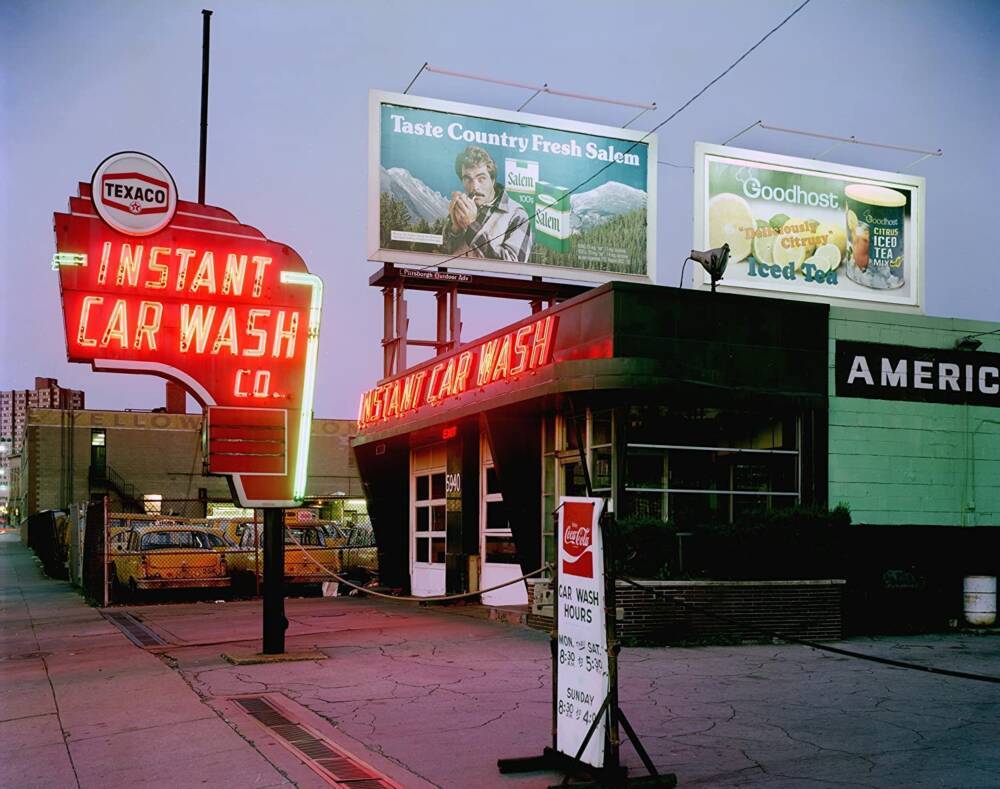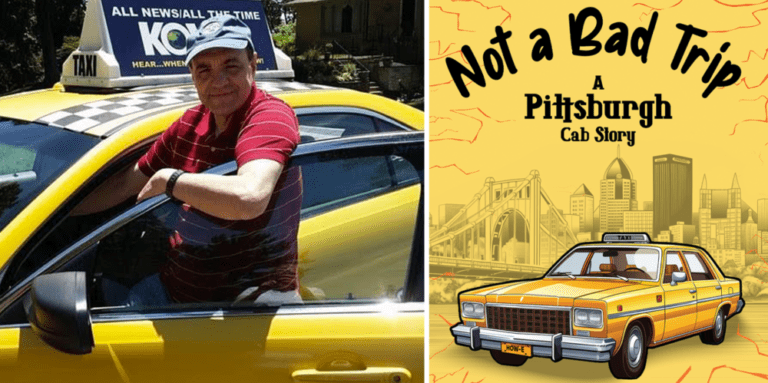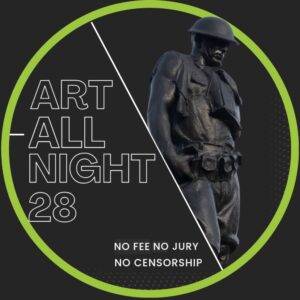From the Publisher: “In 1977, Howie landed a summer job to offset college expenses. Forty years later, he finished his shift. Not a Bad Trip: A Pittsburgh Cab Story takes you along for the ride, offering an intimate view inside this often maligned and misunderstood profession.
These stories provide snapshots across each decade from the era of iconic Checker dinosaurs ruling city streets, through the inevitable transformation into today’s Uber economy. Readers encounter people from all walks of life, uncovering the humanity inside high-profile celebrities, while discovering the extraordinary within ordinary folks. Not a Bad Trip unravels mysteries philosophers have forever pondered, like: How do I hail a cab? Why is the airport called The Promised Land? Why does my mediocre rideshare driver have five stars? Even the perennial How much should I tip?
Relax. Enjoy the ride. And, yes, look out the windows as the place—Pittsburgh, becomes the star of the show.”
More info About the Author: Howard (Howie) Ehrlichman is a Pittsburgh lifer. A 1979 Penn State graduate, he resides in the eastern suburbs with his wife, Christina, a dog and three cats. Chris and Howie are proud parents of four children.
Howie’s taxi career began in 1977. In 1984, he took a twelve year “break” to operate a dynamic food store in a diverse and thriving Pittsburgh neighborhood. After selling the business, he returned to Yellow Cab in 1996. Two years later, he fulfilled a childhood dream, becoming a bus operator, and later, a dispatch supervisor until retiring in 2021. Throughout his transit career, he remained a dedicated weekend warrior at the cab company.
Not a Bad Trip is Howie’s debut book. He turned in his cab for the last time in 2016, ending his four-decade love affair with taxicab life. Although “officially” retired, he continues to dabble in the gig world of delivery and rideshare.
 What inspired you to write this book?
What inspired you to write this book?
Throughout my years as a cab driver, passengers asked questions like, What’s the craziest thing that ever happened in your taxi? I think this is a universal expectation for most cabbies—and even Uber drivers. For me, there were so many memorable incidents that there was never an easy answer. And, honestly, after ten or twelve hours behind the wheel, I did not always feel like performing an animated oratory at two AM.
One evening while shuttling a group of folks to South Side, the city’s barhopping mecca, they peppered me with the usual inquiries, such as, how long have you been driving a cab? Has anyone had sex in the back seat? And, of course, the “craziest thing” question. At first, I brushed them off with brief and generic replies, which they found unsatisfactory. As they pressed for greater detail, the thought just popped into my head. “I’ve seen so much on this job that it could probably fill a book!” My passengers loved the idea, and so did I.

It took a long time to decide on a title that felt right. I was surprised to find a few similar books on the market, mostly set in much larger cities like Chicago, New York, and Toronto, with titles such as Taxi Confidential and Hack—both New York and Chicago versions. While these books were all worthwhile readings, I wanted a title that was more intrinsic to my writing. “Hack” has never been a common reference point in Pittsburgh’s cab culture, and the confessions concept seemed cliché.
When Yellow Cabs were radio dispatched—think 20th century—each dispatcher had their own phrases and terminology used to entice cabbies to answer “open” or awaiting trips. One of my favorites was not a bad trip. After wrestling with several ideas for a title, Not a Bad Trip just resonated. I later added A Cab Story to clarify that the book was about taxi life rather than a nice vacation or a psychedelic drug adventure. In the final stages, my publisher suggested inserting Pittsburgh into the title to emphasize its local flavor.

In your opinion, what makes a “good cab driver?”
Like a successful writer, a cab driver needs to be a “good reader.” For the cabby, this is not so much about consuming literature as it is “reading” their environment. They need to “read the streets.” What are the traffic conditions? Far more important, what is the vibe? Is this a good place to be at this time? Where are the good fares at? And above all, is this a safe situation? Cab driving has always been a risky enterprise.
Another imperative reading requirement for cabbies—and I would include Uber drivers here—read your passenger(s). What kind of mood do they seem to be in? Their body language; facial expressions? Most of them seek nothing more than a simple and transactional relationship involving movement between points A and B in an efficient, safe, and stressless manner. Sure, a friendly greeting or acknowledgement is always in order, but don’t be offended if it goes unreciprocated. If they seem receptive, initiate a casual conversation. Ask about their day. The weather; football; whatever music is playing on the radio now—all good. Politics. Religion. Just don’t unless you strongly sense some common cohesion. If you do this work for a while, you develop an extra sense of reading the room. Use that intuition to measure your interactions. Good rule of thumb: If you exceed much more than 50% of the dialogue, you may not be having a good conversation. One exception, though—if they ask you to tell them a good cab story.
What would you like to see your readers take away from this book?
First, I hope they find it to be an enjoyable, entertaining, and educational read. A key piece of the educational component was highlighting the history and culture of a once prominent American business model that seems to be in danger of extinction. I also wanted to erase the unfair, negative perceptions and stereotypes often ascribed to cab drivers.
While Not a Bad Trip introduces some great characters and their stories, the setting—Pittsburgh—maintains a constant and powerful presence. My goal is for the reader to learn more about the ‘Burgh after reading the book than they had any idea of beforehand. And if they reaffirm, or newly embrace the concept of Yinz, I think I did my job.

























